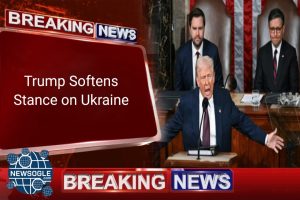Khyber Pakhtunkhwa (KP) Chief Minister Ali Amin Gandapur is set to address the provincial assembly regarding the outcomes of the recent Pashtun Jirga, which aimed to address pressing issues faced by the Pashtun community. This significant session will take place today, where Gandapur will present the suggestions and concerns raised during the jirga, which concluded peacefully.
Table of Contents
Background of the Pashtun Jirga
The Pashtun Jirga, a traditional assembly of tribal leaders and community representatives, was convened to discuss various issues affecting the Pashtun population, especially in light of recent tensions surrounding the banned Pashtun Tahafuz Movement (PTM). The KP government had previously directed local administrations to facilitate the jirga by providing essential amenities such as water, temporary washrooms, medical camps, and blankets for participants.
Gandapur expressed gratitude for the peaceful conclusion of the jirga, emphasizing his role as a host in ensuring that all necessary arrangements were made in a short time. He stated, “As a host, I did my best to provide the necessary facilities.” His commitment to addressing public concerns was evident as he assured that he would work within the framework of the constitution and law to implement the recommendations made during the jirga.
Key Issues Discussed
During the jirga, tribal leaders and representatives from various political parties engaged in discussions about critical local issues. The focus was on matters such as security, development, and social justice. Gandapur pledged to raise issues beyond the provincial government’s authority with relevant federal authorities, highlighting his determination to address public expectations effectively.
The chief minister emphasized that it is the government’s responsibility to listen to public concerns and work collaboratively with both government and opposition members in the assembly. This inclusive approach aims to foster dialogue and consensus on pressing issues facing Khyber Pakhtunkhwa.
The Role of Traditional Institutions
The jirga’s outcomes are significant not only for their immediate implications but also for reaffirming the importance of traditional institutions in resolving conflicts. The Pashtun Jirga serves as a platform for dialogue and negotiation, reflecting cultural practices deeply rooted in Pashtun society. Gandapur’s leadership during this process underscores a commitment to utilizing these traditional mechanisms for peacebuilding.
Previous Tensions and Government Response
The backdrop of this jirga includes heightened tensions following violent clashes involving PTM activists. The federal government had imposed a ban on PTM activities, citing threats to national security. In response to these tensions, Gandapur took proactive measures by hosting a grand jirga at his residence, which included key political figures and representatives from various factions.
This gathering marked a pivotal moment in KP politics as diverse political leaders came together to address urgent peace and security issues. The chief minister’s ability to bring together various stakeholders demonstrates a willingness to transcend political affiliations for the greater good of peace in the province.
Future Steps
Following today’s discussion in the provincial assembly, it is anticipated that Gandapur will lead efforts to implement actionable solutions based on the jirga’s recommendations. He has committed to ensuring that genuine demands from community leaders are taken seriously at all levels of governance.
Moreover, Gandapur’s administration plans to engage with federal authorities regarding matters that require their intervention. This collaboration is crucial for addressing systemic issues affecting the Pashtun community and ensuring that their voices are heard in national discourse.
Conclusion
The upcoming session in the KP assembly represents a critical juncture for addressing long-standing grievances within the Pashtun community. Chief Minister Ali Amin Gandapur’s commitment to facilitating dialogue through traditional institutions like the jirga reflects an understanding of local dynamics and cultural practices.
As he prepares to present the outcomes of the Pashtun Jirga, there is hope that this initiative will pave the way for constructive engagement between various stakeholders. The emphasis on inclusivity and collaboration sets a positive precedent for future governance in Khyber Pakhtunkhwa.
In an era where traditional methods of conflict resolution are often overlooked, Gandapur’s approach highlights their relevance in contemporary politics. By fostering dialogue and understanding among diverse groups, there is potential for lasting peace and stability in Khyber Pakhtunkhwa—a goal that resonates deeply with all citizens seeking a brighter future.
As discussions unfold in today’s assembly session, all eyes will be on how these outcomes shape policies and initiatives moving forward, ultimately impacting not just Khyber Pakhtunkhwa but also setting an example for other regions facing similar challenges.
Citations:
[1] https://tribune.com.pk/story/2502685/k-p-cm-gandapur-to-discuss-pashtun-jirga-outcomes-with-provincial-assembly
[2] https://www.dawn.com/news/1864320
[3] https://www.thenews.com.pk/print/1238966-after-securing-jirga-s-trust-kp-cm-makes-peace-overtures
[4] https://www.dawn.com/news/1864678/cm-gandapur-says-kp-takes-ownership-of-ptm-jirga
[5] https://economictimes.indiatimes.com/news/international/world-news/north-korea-floods-kim-jong-un-allegedly-executes-govt-officials-for-their-failure-says-report/videoshow/113078315.cms
[6] https://www.cnn.com/2024/09/27/middleeast/israel-pager-attack-hezbollah-lebanon-invs-intl/index.html
[7] https://www.indiatoday.in/world/story/israel-hezbollah-pager-blast-manufactured-shell-company-bac-explosive-pagers-covert-operation-lebanon-hungary-2602750-2024-09-19
[8] https://www.middleeasteye.net/explainers/israel-pager-attack-lebanon-break-international-law-hezbollah





